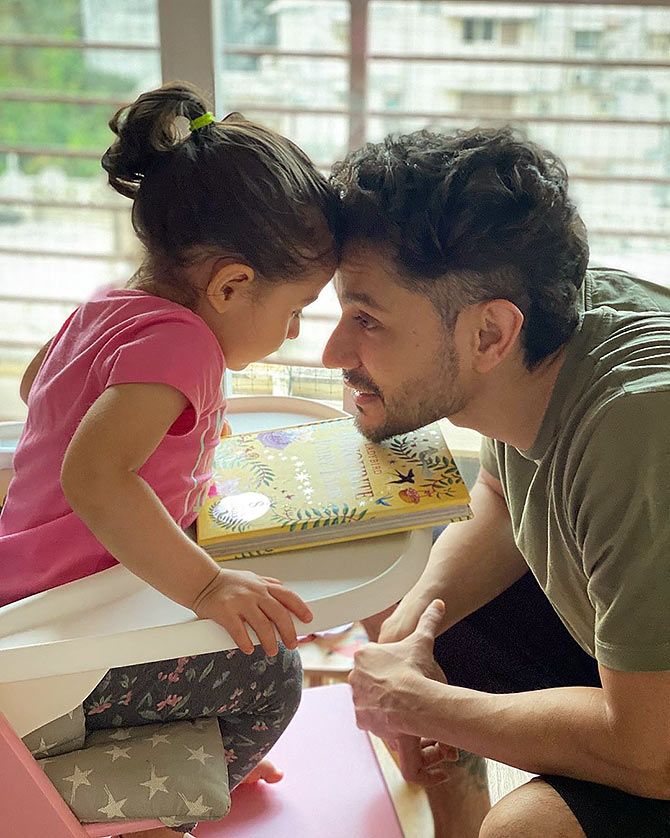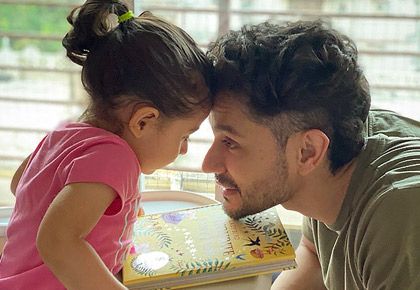Equal parenting is not about sharing baby-care responsibilities only; it includes housework, breadwinning and some me-time as well.

A newborn is one of life’s greatest joys.
The emotions that come along with a newborn are often felt more deeply than any other feelings we humans are capable of having.
On the other hand, it is also true that there’s no way to mentally prepare for this adventure as parents, together. Especially for first time parents, the initial journey is a complete roller coaster ride.
The scenarios parents face is as unique as their child.
The role of a mother and a father is always debatable in shaping their kid’s future. And that’s where the concept of equal parenting comes to play.
Widely known as equally shared parenting or equal parenting, this concept is now practiced by a growing number of couples in Indian households.
To break the pre-conceived notions, equal parenting is not about sharing baby-care responsibilities only; it includes housework, breadwinning and some me-time as well.
It stands in sharp contrast to the traditional marriage with kids, where the man goes to work and the woman stays home, or the ‘supermom’ marriage, in which the man works and the woman tries to balance a career with the lion’s share of the childcare and household tasks.
Equally sharing the responsibilities of your babies with your partner is about balancing life, balancing the family's collective life.
Equally sharing the joys of raising a family raises better children.
How does equal parenting benefit a child?
As they say a child’s learning starts at home hence, it becomes important that they learn that no work is gender-biased nor big or small.
Having parenting responsibilities, chores, hobbies, and even breaks split between partners help them understand the true meaning of equality and that is what they would work towards in their future as it will be their 'normal.'
When both parents are committed to working together on common family goals, it sets a great example of teamwork and support that goes a long way in the child’s life. They understand the true meaning of family harmony, security, and break gender stereotypes.
It has been proven that kids’ who witness active and effective equal and shared parenting, show a high emotional quotient right while stepping into their adulthood.
They’re trained to take on challenges effectively while mastering the do’s and don’ts of handling conflicts peacefully with a good mental and emotional well-being.
How to get the elders and extended family on the same page about raising a child together?
Patience and communication are the most important factors to be on the same page about raising a child together.
Generations of conditioning being at play here, families especially the older generations will take time to understand and accept this radical change.
However, it will be imperative for the coming generations that we at least try.
Communicating in a non-defensive and non-critical way is extremely essential here as one needs to keep in mind that the elders and extended family are beginning to change what they thought as ‘tradition’.
Beyond the immediate family, it is also important to show the ideas of equal parenting to the society at large to ensure that they bring it in their day-to-day communication and behaviour and treat it as normal.
Often society and even brands subconsciously push the stereotypes about unequal gender roles in parenting.
As responsible parents, it becomes their duty to call out these things actively and initiate a dialogue on breaking out of them.
True equal parenting provides a lot of mental and physical support to the mother in handling her baby responsibilities, her work responsibilities and even allows her some me-time to wind down and recharge her batteries.
Several studies have found that equal parenting reduces the chances of post-partum depression commonly faced by a lot of new mothers.
Equal parenting is great for everyone involved including the baby, and it is about time we initiated a dialogue around it.
If it was just the mother’s job, wouldn’t it be called 'mothering!'

Pallavi Utagi is founder, Superbottoms that provides eco-friendly cloth diapers for babies in India. She can be contacted on ga@rediff.co.in.










